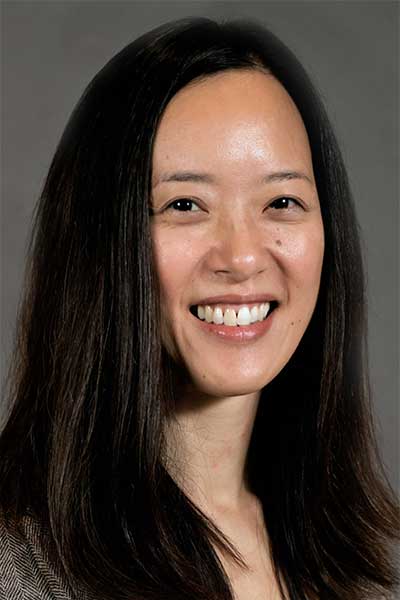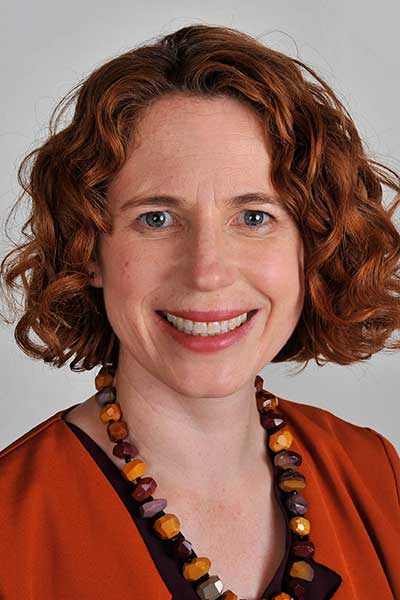A full-day, online-only program on Friday, Nov. 10, will highlight the intersection of rheumatology and global health as a prelude to ACR Convergence 2023. The Global Rheumatology Summit will begin at 7:30 a.m. PT.

“We have become an increasingly interconnected organization with rheumatology partners, members, and meeting participants from all across the globe,” said Evelyn Hsieh, MD, PhD, ACR Global Engagement Committee Chair. “Each year, the Global Summit seeks to bring together this global community to explore topics and priorities that underscore shared challenges, highlight innovative solutions, and celebrate successful partnerships. These have included the role of technology to advance rheumatology training and education globally, access to care, advocacy, building equitable partnerships, social justice, climate change, and women leaders in rheumatology.”
This year, the Global Summit will continue to facilitate a new set of critical conversations in global rheumatology, using an online format to promote accessibility of the program to a wide audience. The Summit will be livestreamed and will be available to view on demand by registered ACR Convergence participants.
“We’re inviting active engagement from whoever is in our global community who feels they have something to contribute,” said Rebecca Grainger, MBChB, PhD, FRACP, who is an international ACR member, Global Engagement Committee member, and moderator for the summit. “We put a lot of thought into what content would be of interest to anyone anywhere in the world. We also think about how the Global Summit can be something where everyone’s experience is valid and we’re not talking about what’s better or worse. It’s about being innovative and inspiring in a way that we can all learn from.”

This year’s schedule is as follows. All times are Pacific Time.
- 8–9 a.m. Global Summit: Opening Session
- 9:15–10:30 a.m. Global Meet the Experts: RA
- 10:45–11:45 a.m. Actions with Impact: Policy and Global Rheumatology
- 12–1 p.m. Rheumatic Disease in Indigenous Populations
- 1:15–2:15 p.m. Under Construction: Capacity Building and Sustainability in Global Rheumatology
- 2:15–3 p.m. Global Researcher Spotlight: Drug Development and Discovery: The Anti-TNF Story
- 3:15–4:15 p.m. Global Priorities, Opportunities and Challenges in Rheumatology Research
The opening session will include recognition of the 2023 International Rheumatology Professional Award winner and a keynote address from Jayasree Iyer, PhD, MSc, CEO of the Access to Medicines Foundation, on the need for radical changes in drug development to ensure access to essential therapies.
“Challenges in access to medications around the world have a tremendous impact on patient well-being and mortality, and this barrier is certainly not limited to the field of rheumatology. Dr. Iyer is a thought leader and changemaker in this field, and through the experience and work of the Access to Medicines Foundation, we hope to illuminate novel strategies that could help improve access to medicines for our patient populations as well,” said Dr. Hsieh, Associate Professor of Medicine (Rheumatology) and Epidemiology (Chronic Diseases) at the Yale Schools of Medicine and Public Health, and Chief of Rheumatology for the VA Connecticut Healthcare System.
Expanding on the theme of access to pharmaceutical therapies, the Global Researcher Spotlight will feature Ravinder Nath Maini, FRCP, an international researcher who was instrumental in the development of tumor necrosis factor (TNF) inhibitor medication, which has changed the landscape of rheumatology care.
“Many topics in the program are related to issues that are universal, such as impact of health policy on patient care and health outcomes, or the important role that rheumatology patients play in advocacy efforts around the world,” Dr. Hsieh said. “Those really have no boundaries because everyone everywhere is trying to figure out how we can work together to lift up rheumatology on the agenda in our communities, in our health systems, and in our policy arenas.”
Another universal challenge with diverse solutions concerns sustainability and the need to develop clinical and research capacity in low-resource settings.
“Our presenters will highlight programs where the focus has been not only on implementation, but on building capacity and sustainability, in order to achieve the greatest long-term impact,” Dr. Hsieh said.
In the Meet the Experts session, faculty from Asia, North America, and Europe will discuss rheumatoid arthritis cases from their respective regions.
Rheumatic Disease in Indigenous Populations will feature clinical and practice-related issues from Argentina, Canada, and New Zealand.
“There is a wide narrative at the moment about all the different parts of our communities that have been or are marginalized, and we’ve got an enhanced understanding that their experiences of healthcare and health systems, and communities is very different from the dominant cultures,” said Dr. Grainger, Professor of Medicine at the University of Otago in New Zealand. “I feel very proud that we’ve intentionally given a voice to leaders from these communities who have deep expertise in various aspects of rheumatic diseases.”
The day will conclude with a panel discussion with early career investigators highlighting collaborative networking, funding, research exchanges, mentoring, and how to navigate institutional support.

Registered ACR Convergence 2024 Participants:
Watch the Replay
Select ACR Convergence 2024 scientific sessions are available to registered participants for on-demand viewing through October 10, 2025. Log in to the meeting website to continue your ACR Convergence experience.
